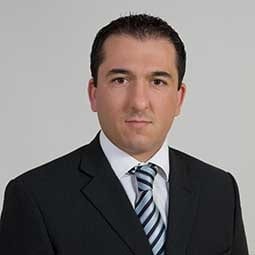We’ve received a lot of questions as to what has changed (or will change) for both brokers and traders following CySEC’s new consultation paper for replacing the ICF (Investor Compensation Fund).
And so, we turned to experts on the sector, Cyprus-based regulatory consultants MAP S.Platis to explain what it all means. We’re pleased to present the following special guest post, courtesy of MAP S.Platis General Manager Demetris Taxitaris.
Consultation Paper (CP2017-02) on the Replacement of the legal framework governing the operation of the Investor Compensation Fund (ICF) commentary
The Cyprus Securities and Exchange Commission (CySEC) issued 12 April 2017 a Consultation Paper (CP2017-02) on the Replacement of the legal framework governing the operation of the Investor Compensation Fund (ICF).
Brief overview

Demetris Taxitaris, MAP S.Platis
Currently, all Cypriot Investment Firms (CIFs) being authorised to provide investment and any ancillary services are obliged to participate to the ICF, since participation in the Compensation Fund forms a requirement for holding a CIF authorization pursuant to Article 17 of the Investment Services and Activities and Regulated Markets Law of 2007 (the Law) as in force. This participation to the ICF is an obligation for CIFs irrespective of the services they are authorised to provide and, interestingly, irrespective of whether clients’ funds and financial instruments are held (which are the subject matter in case of potential compensation).
The types of authorised services of a CIF determine the level of initial contributions and the level of safekeeping and custody of retail clients’ funds and financial instruments determine the level of ongoing annual contributions of a CIF. The assets of the ICF consist of the initial, regular annual and extraordinary supplementary contributions made by its members plus any proceeds from investing these assets from time to time.
Crucially, it is only assets of retail clients that are covered and may be potentially compensated by the ICF if a CIF runs into trouble, with the maximum compensation for each client being €20.000.
What is materially changing
We understand that proposals under the Consultation Paper aim at reflecting recent years’ developments in the financial markets as well as allowing a more targeted approach in reflecting the circumstances of each CIF including the respective risks. In our view, it reflects a tougher approach by CySEC and an attempt to find solutions in response to losses of client funds observed in certain occasions in recent years.
1. Until today, contributions to the ICF formed part of the assets of its contributing member. In other words, any amount contributed to the ICF plus any return thereon would be returned to the contributing CIF in case of its authorisation being withdrawn for any reason and provided no claims arose against it by its retail clients. If the new provisions come into force, contributions and fees paid to the ICF shall not form an asset of its members and, therefore, no amount may be refunded to the CIFs at any stage, including when their authorisation is withdrawn. It seems that the new provisions, provided they are effected, will cover also the existing contributions and returns thereon of the members of the ICF i.e. whatever amount currently is shown as an asset in the balance sheet of CIFs ‘invested’ at the ICF will have to be written off. This is probably the most drastic change this Consultation Paper brings with it.
2. Initial contributions for investment firms under the new proposals and the existing Directive are shown in the table below:
| Type of service | Initial contributions | |
| Under existing Directive DI144-2007-15 | Under CP2017-02 | |
| Reception and transmission of orders | Not specified | €10.000 |
| Execution of orders | €13.669 | €16.000 |
| Reception and transmission of orders and Execution of orders | €22.212 | Not applicable |
| Dealing on own account | €17.086 | €35.000 |
| Portfolio management | €25.629 | €32.500 |
| Investment advice | No contribution required | €10.000 |
| Underwriting and/or placing of financial instruments on a firm commitment basis | €17.086 | €20.000 |
| Placing of financial instruments without a firm commitment basis | No contribution required | €10.000 |
| Operation of Multilateral Trading Facility | No contribution required | €10.000 |
| Safekeeping and administration of financial instruments for the account of clients | €20.503 | €35.000 |
3. Members not holding in any way client assets (e.g. firms providing solely the investment service of investment advice), shall continue not paying a regular annual contribution. However, a new annual fee of €700 is introduced for all members aiming at covering administrative and other operational expenses of the ICF.
4. The regular annual contributions of the members under the proposed directive seem to be calculated in a similar way as before, albeit with financial disincentives introduced for no clean audit certificate of assurance for the statement of eligible funds and financial instruments or for late payments. The effective contribution is still 0,1% provided payment is made in time but there is a heavy penalty applying, increasing this contribution to 0,5%, for late payments after 15 May annually. For example, a firm holding a maximum of total retail client assets of €1million over the 12 months of a calendar year (with each retail client assets capped at €20.000), will need to contribute €1.000 to the ICF by 15 May of next year or €5.000 if payment is made after 15 May of next year.
5. Moreover, the cap of 0,5% of the total eligible client assets of the CIF during a year applied until now to the overall amounts contributed to the ICF by any CIF is proposed to be removed. Until today, a CIF would cease contributing if its cumulative contributions to the ICF (including initial contributions) reached 0,5% of the maximum of total retail client assets of the CIF during the previous year. In other words, our CIF in the example above will need to contribute every year to the ICF from now on, even if its retail client assets remain constant at €1million over the years.
6. CySEC always had the right to ask members to make an extraordinary supplementary contribution (which has always been arbitrarily defined) if it deems that the existing means for the payment of compensation are inadequate, particularly in the event of a liquidation procedure of a member of the ICF. The Consultation Paper includes a provision, which enables CySEC to calculate the extraordinary contribution per category or sub-category of members, in order for this to be effected on a basis reflecting the risk of each category or sub-category of members at the time, rather than on a single basis for all members. To our understanding and without adequate explanations, this still remains arbitrary and ambiguous.
7. Compensation for valid claims is changing too to the lower of 90% of the total claims of this client and €20.000 from today 100% with a maximum of €20.000. In other words, somebody who held €30.000 with a CIF which runs into trouble and is unable to pay will get €20.000 from the ICF, while somebody with €10.000 will get €9.000.
8. A development of recent years is Alternative Investment Fund Managers (AIFMs) who can provide the services of discretionary portfolio management, investment advice, safe-keeping and administration in relation to shares or units of collective investment undertakings and reception and transmission of orders in relation to financial instruments to different client types, alongside providing investment management and risk management and other services to Alternative Investment Funds (AIFs). Also, Management Companies of Undertakings for Collective Investment in Transferable Securities (UCITS) are allowed to provide discretionary portfolio management, investment advice, and safe-keeping and administration in relation to units of collective investment undertakings to different client types, alongside providing investment management and other services to UCITS.
AIFMs and UCITS Management Companies are proposed to become members of the ICF in relation to the services above which are provided to clients other than AIFs and UCITS respectively. The Consultation Paper includes provisions for specific contributions by AIFMs and UCITS Management Companies subject to their service offering. So going forward, ICF members will not only be investment firms but also AIFMs and UCITS Management Companies subject to this service offering.
Demetris Taxitaris can be contacted at [email protected].
